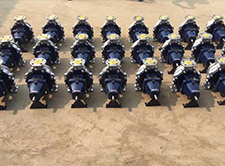Croatian
- Afrikaans
- Albanian
- Amharic
- Arabic
- Armenian
- Azerbaijani
- Basque
- Belarusian
- Bengali
- Bosnian
- Bulgarian
- Catalan
- Cebuano
- Corsican
- Croatian
- Czech
- Danish
- Dutch
- English
- Esperanto
- Estonian
- Finnish
- French
- Frisian
- Galician
- Georgian
- German
- Greek
- Gujarati
- Haitian Creole
- hausa
- hawaiian
- Hebrew
- Hindi
- Miao
- Hungarian
- Icelandic
- igbo
- Indonesian
- irish
- Italian
- Japanese
- Javanese
- Kannada
- kazakh
- Khmer
- Rwandese
- Korean
- Kurdish
- Kyrgyz
- Lao
- Latin
- Latvian
- Lithuanian
- Luxembourgish
- Macedonian
- Malgashi
- Malay
- Malayalam
- Maltese
- Maori
- Marathi
- Mongolian
- Myanmar
- Nepali
- Norwegian
- Norwegian
- Occitan
- Pashto
- Persian
- Polish
- Portuguese
- Punjabi
- Romanian
- Russian
- Samoan
- Scottish Gaelic
- Serbian
- Sesotho
- Shona
- Sindhi
- Sinhala
- Slovak
- Slovenian
- Somali
- Spanish
- Sundanese
- Swahili
- Swedish
- Tagalog
- Tajik
- Tamil
- Tatar
- Telugu
- Thai
- Turkish
- Turkmen
- Ukrainian
- Urdu
- Uighur
- Uzbek
- Vietnamese
- Welsh
- Bantu
- Yiddish
- Yoruba
- Zulu
Telephone: +86 13120555503
Email: frank@cypump.com
ruj . 16, 2024 07:15 Back to list
Septic Sprinkler Pump Solutions | Efficient Wastewater Management
Understanding Septic Sprinkler Pumps A Comprehensive Guide
Septic systems play a crucial role in managing wastewater in areas where central sewage systems are not available. Among the various components of a septic system, the septic sprinkler pump is essential for ensuring effective effluent distribution, maintaining the health of the system, and promoting environmental sustainability. In this article, we’ll explore the function, significance, and maintenance of septic sprinkler pumps.
What is a Septic Sprinkler Pump?
A septic sprinkler pump, often referred to as a septic tank effluent pump (STEP), is designed to help distribute treated wastewater or effluent from a septic tank to the drain field or leach field. Unlike gravity-fed systems, which rely on the natural slope of the land, a septic sprinkler pump actively pumps effluent under pressure, ensuring an even distribution and preventing wet spots or areas of saturation.
Importance of Septic Sprinkler Pumps
1. Effective Wastewater Management The primary function of the septic sprinkler pump is to transport treated effluent away from the septic tank. This process is crucial for reducing the risk of system failure, which can lead to costly repairs and environmental contamination.
2. Promoting Groundwater Safety By ensuring that effluent is properly distributed, septic sprinkler pumps help protect groundwater from pollution. This is particularly important in rural areas, where groundwater is often a primary source of drinking water.
3. Regulatory Compliance Many municipalities require proper effluent management as part of their environmental regulations. A well-functioning septic sprinkler pump can help homeowners comply with these regulations, avoiding potential fines or legal issues.
septic sprinkler pump

Maintenance Tips
To ensure your septic sprinkler pump operates efficiently, regular maintenance is necessary
- Regular Inspections Have your pump inspected periodically by a professional. Look for signs of wear, blockage, or mechanical issues that may affect performance.
- Filter Cleaning Many pumps come with filters to prevent solids from entering the pump. Clean these filters regularly to ensure optimal operation.
- Avoid Overloading Be mindful of water usage in your household. Overloading the septic system with excessive water can lead to pump failure and system backups.
- Educate Users Ensure that everyone in your home understands what can and cannot be flushed or poured down the drain. Non-biodegradable materials can clog the system and damage the pump.
In conclusion, a septic sprinkler pump is an essential component of an effective septic system. Its role in ensuring the safe and efficient distribution of treated effluent cannot be overstated. By understanding its functions, significance, and maintenance needs, homeowners can help safeguard their property and the environment while maintaining a healthy, functioning septic system.
-
Heavy-Duty Mining Sludge Pumps - Wear-Resistant Slurry Handling
NewsAug.02,2025
-
Horizontal Split Case Pump with GPT-4 Turbo | High Efficiency
NewsAug.01,2025
-
ISG Series Pipeline Pump - Chi Yuan Pumps | High Efficiency, Durable Design
NewsAug.01,2025
-
Advanced Flue Gas Desulfurization Pump with GPT-4 Turbo | Durable & Efficient
NewsJul.31,2025
-
ISG Series Vertical Pipeline Pump - Chi Yuan Pumps | Advanced Hydraulic Design&Durable Construction
NewsJul.31,2025
-
ISG Series Vertical Pipeline Pump - Chi Yuan Pumps | Energy Efficient & Low Noise
NewsJul.31,2025










